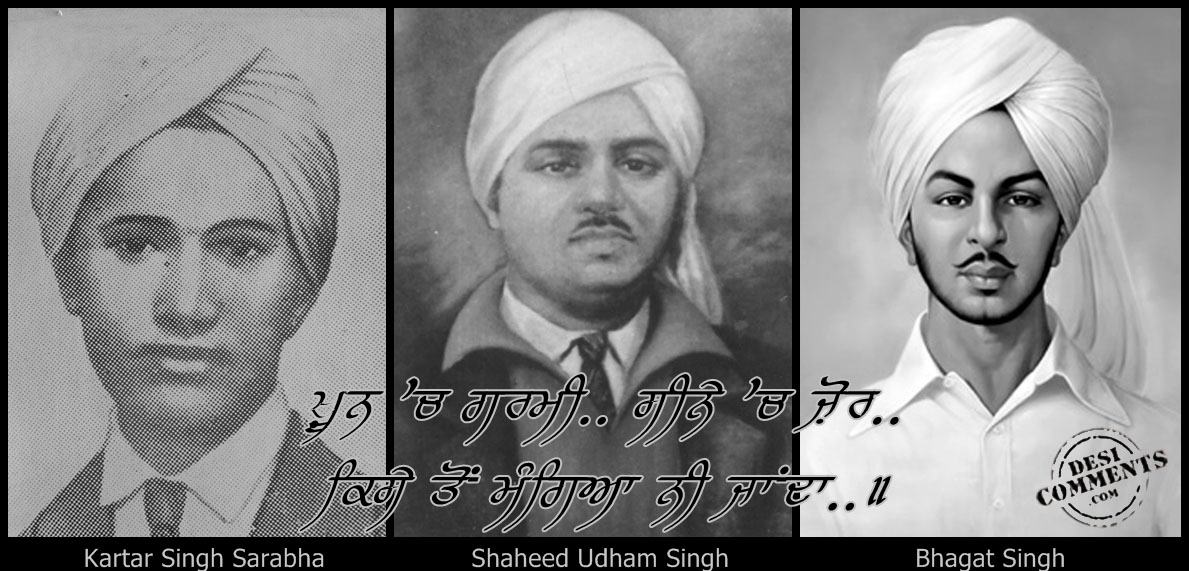Are Bhagat Singh And Udham Singh Related?

The legacy of Indian freedom fighters is rich and diverse, encompassing a range of ideologies, backgrounds, and motivations. Among the most prominent figures in this struggle are Bhagat Singh and Udham Singh. Both men are celebrated for their passionate fight against British colonial rule in India, yet they emerged from different contexts and played distinct roles in the independence movement. This article delves into their lives, their contributions to the freedom struggle, and explores whether there is any familial or political connection between these two iconic figures.
Quick Info Table
| Feature | Bhagat Singh | Udham Singh |
|---|---|---|
| Birth Year | 1907 | 1899 |
| Birthplace | Banga, Punjab | Sunam, Punjab |
| Key Contribution | Revolutionary activities, martyrdom | Assassination of Michael O'Dwyer |
| Philosophy | Marxist, anti-imperialist | Aimed at seeking justice for the Jallianwala Bagh massacre |
| Execution Date | March 23, 1931 | July 31, 1940 |
Introduction
Bhagat Singh and Udham Singh are often celebrated as martyrs in the Indian struggle for independence, revered for their courage and determination. Their actions and ideologies resonate with many, inspiring generations to fight against oppression and injustice. While both were influential figures in the fight against British rule, they operated in different eras and contexts, raising the question of whether they are related, either by blood or ideology. Understanding their backgrounds, motivations, and contributions helps clarify this connection.
Bhagat Singh: The Revolutionary Icon
Early Life and Ideology
Born on September 28, 1907, in Banga, Punjab, Bhagat Singh was influenced by a family of freedom fighters. His parents and uncles were deeply involved in the struggle against British colonialism, fostering in him a strong sense of nationalism from a young age. His early exposure to revolutionary literature and the harsh realities of British oppression shaped his ideological framework, leading him towards a Marxist philosophy.
Key Contributions
Bhagat Singh is best known for his role in the Hindustan Socialist Republican Association (HSRA), a group that aimed to overthrow British rule through armed struggle. His most notable act was the assassination of British police officer John Saunders in 1928, which he carried out to avenge the death of his activist colleague Lala Lajpat Rai.
In 1929, Bhagat Singh and his associate Batukeshwar Dutt threw non-lethal bombs in the Central Legislative Assembly to make a political statement, leading to their arrest. During his imprisonment, Singh turned his trial into a platform for revolutionary ideas, advocating for the rights of the oppressed. His execution on March 23, 1931, turned him into a martyr and a symbol of resistance against colonial rule.
Udham Singh: The Avenger of Jallianwala Bagh
Early Life and Motivations
Udham Singh was born on February 26, 1899, in Sunam, Punjab. His life took a tragic turn following the infamous Jallianwala Bagh massacre in 1919, where British troops killed hundreds of unarmed Indian civilians. This event left a profound impact on Singh, shaping his worldview and igniting a desire for revenge against the British colonizers.
Key Contributions
Udham Singh's most significant act of defiance came on March 13, 1940, when he assassinated Michael O'Dwyer, the Lieutenant Governor of Punjab at the time of the massacre. Singh believed that O'Dwyer's policies contributed to the brutality inflicted upon Indian civilians. Following his arrest, Singh showed no remorse, using his trial to highlight the injustices faced by Indians under British rule. He was executed on July 31, 1940, and his death further fueled the fire of independence among his compatriots.
Exploring the Connection: Are They Related?
Family Ties
Despite both being hailed as freedom fighters from Punjab, Bhagat Singh and Udham Singh are not related by blood. Their connection lies primarily in their shared commitment to the cause of Indian independence and their tragic fates at the hands of British authorities.
Ideological Links
While there is no familial relationship, the two men share ideological similarities. Both were deeply influenced by the harsh realities of colonial rule and sought justice through extreme measures. Bhagat Singh focused on revolutionary socialism, advocating for a complete overhaul of society, while Udham Singh sought personal retribution for the atrocities committed against his people. Their motivations stemmed from a similar sense of injustice, though their methods and philosophies diverged.
Symbol of Resistance
Both Bhagat Singh and Udham Singh symbolize different facets of the resistance against British rule. Bhagat Singh represents the revolutionary zeal of youth, emphasizing collective action and socialist ideals. In contrast, Udham Singh embodies the quest for individual justice, demonstrating how personal trauma can catalyze a broader political struggle. Their legacies continue to inspire countless individuals in India and beyond, emphasizing the importance of standing against oppression.
Conclusion
In summary, while Bhagat Singh and Udham Singh are not related by blood, their lives are intertwined through their shared commitment to India's struggle for independence. Each man represents a unique response to colonial violence, reflecting the varied paths taken by freedom fighters. Their sacrifices remind us of the complex tapestry of the Indian independence movement and the many voices that contributed to its success.
As we reflect on their legacies, we are reminded of the importance of vigilance against oppression in all its forms. The stories of Bhagat Singh and Udham Singh continue to resonate today, urging new generations to carry forward the ideals of justice, equality, and freedom.
In light of this exploration, it is essential to honor their sacrifices while acknowledging the diverse motivations and ideologies that fueled the fight for India's independence. Their stories serve as a powerful reminder that the quest for justice often takes many forms, and every voice in the struggle matters.



Comments ()